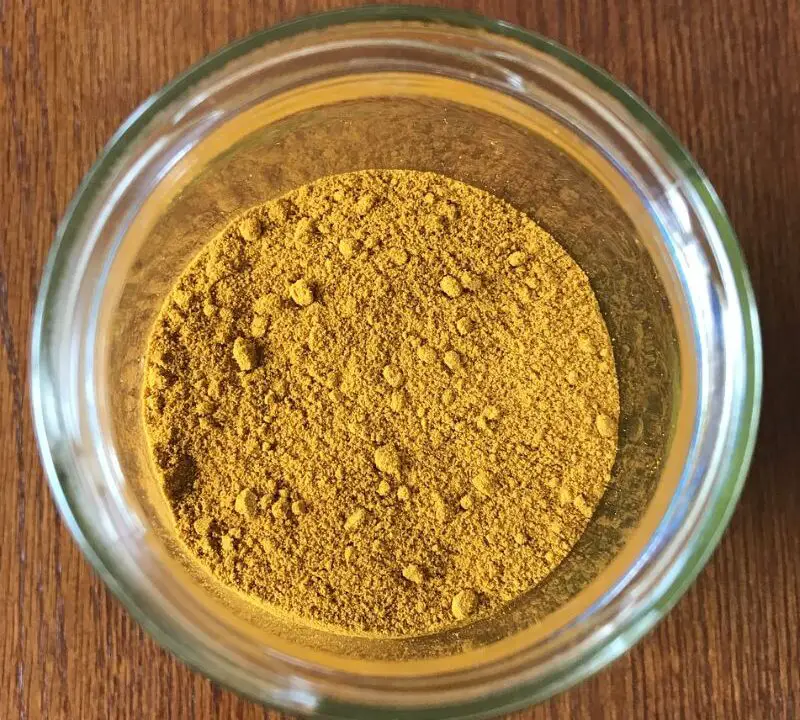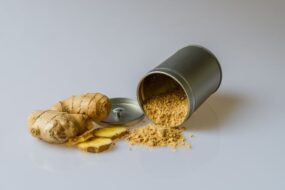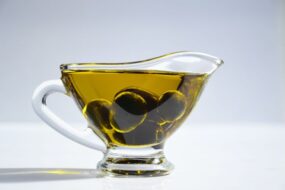
You may have heard about berberine supplements if you want to lose weight. But how do you take them effectively? Here’s everything you need to know to start your weight-loss journey with Berberine.
Table of Contents (click to expand)
What is Berberine?
Berberine is a type of alkaloid, a class of compounds known for their pharmacological effects, that is derived from various plants such as barberry (Berberis vulgaris), goldenseal (Hydrastis canadensis), Oregon grape (Berberis aquifolium), and Chinese goldthread (Coptis chinensis), among others. These plants have been used in Ayurvedic and traditional Chinese medicine for thousands of years.
The bright yellow compound is known for its potent bioactive properties. In addition to its antimicrobial properties, where it can inhibit the growth of bacteria and other microorganisms, berberine has also been found to have anti-inflammatory and immune-boosting effects.
One of the significant areas of interest in berberine research relates to its potential use in managing metabolic health. Several studies have shown that berberine may help regulate blood sugar levels, improve cholesterol levels, and support weight loss. Berberine seems to exert these effects by improving insulin sensitivity, promoting glucose uptake in cells, and reducing glucose production in the liver.
Related: How to Make Cucumber Water for Weight Loss: A Refreshing Recipe for Health and Wellness
Understanding Berberine and Its Potential Health Benefits
One of the ways berberine appears to work is by increasing insulin receptor expression, which can improve insulin sensitivity and lower blood glucose levels. This effect may make it particularly useful for people with insulin resistance or metabolic disorders.
Additionally, berberine has been shown to have a lipid-lowering effect, meaning it can help lower total cholesterol, triglyceride levels, and LDL (“bad”) cholesterol while increasing HDL (“good”) cholesterol. This effect can benefit heart health and may also help with weight loss.
How Berberine Can Help You Lose Weight
Berberine has several effects that can contribute to weight loss. First and foremost, it can lower blood sugar levels, which can help reduce appetite and suppress cravings. LoweringLowering glucose production and improving insulin sensitivity can also reduce body fat and body weight.
In addition, research suggests that berberine may have a significant weight loss effect. One study published in the Journal of Translational Medicine found that people who took berberine supplements for 12 weeks experienced an average weight loss of 5 pounds, along with improvements in body mass index (BMI) and blood pressure.
Choosing the Right Berberine Supplement for Your Needs
Not all berberine supplements are created equal. When selecting a supplement, look for one that contains at least 500 milligrams of berberine per serving and is made by a reputable manufacturer.
It’s also important to note that if you take any blood sugar-lowering medications, you should talk to your doctor before starting a berberine supplement. Berberine can enhance the effects of these medications, which may lead to low blood sugar levels.
Related: How to Make Lime Water for Weight Loss
Dosages and Timing: When to Take Berberine for Maximum Effectiveness
The optimal dosage and timing for taking berberine may differ based on various factors, including the individual’s health status, age, weight, and the specific health goals they are trying to achieve. However, a considerable body of research investigating the effects of berberine on various health parameters has typically utilized daily doses ranging from 500 to 1500 milligrams.
These doses are generally split into three separate intakes throughout the day, coinciding with meal times. The rationale behind this is twofold:
- Maximizing absorption: Berberine has a relatively low rate of absorption when ingested. Taking it with a meal can enhance this absorption due to other foods and digestive processes in the gut.
- Minimizing side effects: Like many supplements, berberine can cause some gastrointestinal side effects in some people, such as cramping, diarrhea, or constipation. These side effects seem to be reduced when berberine is taken with a meal rather than on an empty stomach.
However, it’s important to note that individual reactions and results can vary significantly. What works best for one person might not work as well for another. Therefore, it’s always recommended to consult a healthcare provider before starting any new supplement regimen, including berberine.
Combining Berberine with Other Supplements for Optimal Results
Berberine may work even better when combined with other supplements. Some recommended combinations include:
- Curcumin: This antioxidant found in turmeric has anti-inflammatory properties and may enhance the weight loss effects of berberine.
- Omega-3 fatty acids: These healthy fats have been shown to improve insulin sensitivity and may support weight loss efforts when combined with berberine.
- Probiotics: A healthy gut microbiome is essential for overall health and may also play a role in weight management. Combining probiotics with berberine may help optimize digestive health and support weight loss.
Berberine vs. Other Weight Loss Supplements: Which One Is Right for You?
Many dietary supplements are marketed for weight loss, but how does berberine compare? According to a meta-analysis of randomized clinical trials, berberine was found to be as effective as cholesterol-lowering drugs at reducing total cholesterol and triglyceride levels.
It was also found to have a significant weight loss effect and other beneficial effects on blood sugar control and insulin resistance.
However, it’s important to note that supplements alone are not a substitute for a healthy diet and lifestyle modifications. To achieve long-term weight loss success, combining supplements with a nutritious diet, regular exercise, and other healthy habits is crucial.
Related: What is the Effect on Weight Loss of Eating Murmura?
Precautions and Possible Side Effects of Taking Berberine
While generally safe, berberine can come with some side effects. Common side effects may include digestive issues such as diarrhea, constipation, or stomach discomfort.
These side effects can often be minimized by starting with a lower dosage and gradually increasing as tolerated.
Berberine may also interact with certain medications, including blood sugar-lowering medications, cholesterol-lowering drugs, and antibiotics.
If you’re taking prescription medications, talking to your healthcare provider before starting a berberine supplement is essential.
Finally, it’s not recommended for pregnant or breastfeeding women to take berberine supplements, and those with a medical condition or chronic conditions should also consult with their healthcare provider before starting a berberine supplement.
How Long Does It Take to See Results from Berberine?
Weight loss is a journey; no magic pill can make it happen overnight. While some people may experience results from berberine within a few weeks, it can take several months to see significant weight loss effects.
It’s important to approach weight loss with patience and a focus on long-term lifestyle changes. Consistency is key, whether taking a berberine supplement or making other healthy choices.
Tips for Maximizing Your Weight Loss with Berberine
Berberine supplements aren’t a silver bullet, but there are things you can do to help optimize your weight loss journey while taking them. Here are some tips to keep in mind:
- Pair berberine with a healthy diet: Berberine may help lower blood sugar levels, but it’s still important to prioritize a nutritious diet rich in whole foods, fruits, and vegetables.
- Incorporate exercise into your routine: Regular physical activity can boost weight loss efforts and support overall health. Aim for at least 30 minutes of moderate-intensity exercise most days of the week.
- Get enough sleep: Sleep plays a crucial role in weight management and overall health. Aim for at least 7-8 hours of quality sleep each night.
- Manage stress: Chronic stress can be a barrier to weight loss. Consider incorporating stress-management techniques like meditation, yoga, or deep breathing into your daily routine.
Frequently Asked Questions About Taking Berberine for Weight Loss
What is the recommended dosage of berberine for weight loss?
As of my knowledge cutoff in September 2021, the recommended dosage of berberine for any health-related purpose, including weight loss, is typically 500 to 1500 mg per day, divided into three doses.
However, it is essential to consult a healthcare provider before beginning any supplement regimen, as individual health conditions and requirements may vary.
Related: How Many Weeks is Considered a Weight Loss Plateau?
Can berberine help lower blood pressure?
Some research suggests that berberine may have potential benefits in managing blood pressure.
This seems to be due to its ability to improve insulin resistance, promote the release of nitric oxide, and have anti-inflammatory effects, all of which can help support healthy blood pressure levels.
However, more research is needed to establish definitive conclusions about berberine’s effectiveness.
Are there any side effects of taking berberine?
Berberine is generally considered safe for most people when used short term. However, some people may experience side effects such as diarrhea, constipation, flatulence, and abdominal pain.
Though rare, serious side effects can include low blood pressure, shortness of breath, and damage to the liver. Pregnant and breastfeeding women, and those with liver disease, should avoid berberine.
How long does it take to see weight loss with berberine?
The duration it takes to see weight loss results with berberine may vary widely among individuals. It depends on factors such as diet, exercise routine, overall health status, and the amount of weight to lose.
Some studies have shown noticeable effects in 12 weeks, but individual results may vary.
How and when should I take Berberine?
Berberine is typically taken orally, and dividing the daily dosage into three doses with meals is often recommended. This is because berberine can lower blood sugar levels and may cause an upset stomach if taken on an empty stomach.
Does berberine curb your appetite?
Berberine is not typically recognized as an appetite suppressant. Its potential effects on weight loss are believed to be more related to improving insulin sensitivity, reducing liver sugar production, and slowing gut carbohydrate breakdown.
What to avoid while taking berberine?
Certain medications may interact with berberine, so discussing with a healthcare provider if you take other drugs is essential.
For example, berberine may decrease the effectiveness of certain antibiotics and could interfere with the metabolism of drugs processed by the liver. Also, berberine can lower blood sugar, so caution is necessary when using it with other blood sugar-lowering medications.
Is it safe to take berberine daily?
Generally, berberine appears safe for most people when used short-term and as directed by a healthcare professional. Most studies have evaluated its use over a few weeks to a few months.
However, long-term safety is not well-studied, and there is some evidence that high doses or prolonged use of berberine can harm the liver. Always consult a healthcare provider before beginning a supplement regimen.
Related: How to Use Meal Replacement Shakes for Weight Loss
Conclusion: Is Berberine Right for You?
Berberine is an exciting natural compound with numerous potential health and weight loss benefits. However, as with any dietary supplement, it’s essential to approach it cautiously and thoroughly understand its possible effects and risks.
If you’re considering taking berberine for weight loss, talk to your healthcare provider to ensure it’s safe and appropriate.
And remember, supplements alone are not a substitute for a healthy diet and lifestyle modifications.
References
- Zhang Y, et al. Treatment of type 2 diabetes and dyslipidemia with the natural plant alkaloid berberine. J Clin Endocrinol Metab. 2008;93(7):2559-2565.
- Zhang H, et al. Berberine lowers blood glucose in type 2 diabetes mellitus patients by increasing insulin receptor expression. Metabolism. 2010;59(2):285-292.
- Dong H, et al. Berberine in treating type 2 diabetes mellitus: a systemic review and meta-analysis. Evid Based Complement Alternat Med. 2012;2012:591654.
- Wei W, et al. A clinical study on the short-term effect of berberine compared to metformin on the metabolic characteristics of women with polycystic ovary syndrome. Eur J Endocrinol. 2012;166(1):99-105.
- Yin J, et al. Efficacy of berberine in patients with type 2 diabetes mellitus. Metabolism. 2008;57(5):712-717.





































